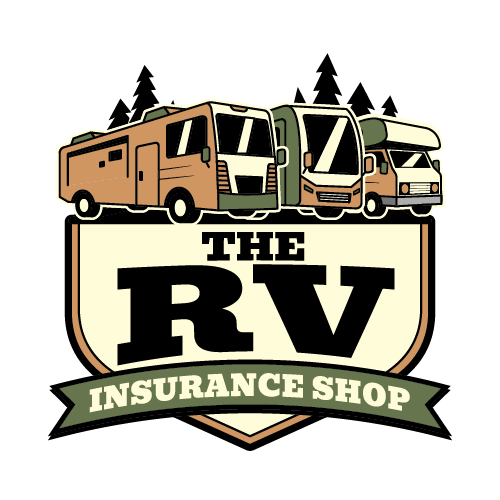Travel Trailer Insurance
Travel trailers offer a diverse range of sizes and layouts, catering to various travel needs from solo adventurers to large families. They are towed using a standard hitch attached to a personal vehicle, making them accessible to many drivers. This versatility in design and function makes them highly popular. Travel trailers require a specialized approach to insurance, as they combine elements of vehicle and home insurance, adjusted for the fact that they are not self-propelled but still subject to many of the same risks as motorhomes when on the road.
Insurance Needs and Coverage Options
This insurance is vital for protecting your travel trailer against non-collision-related incidents such as theft, fire, storm damage, and vandalism. It’s particularly important given that travel trailers can be parked in varied locations which may expose them to different environmental risks.
While your towing vehicle’s insurance may cover liability while the trailer is hitched, separate liability coverage for the trailer is crucial when it’s parked and being used as a residence. This protects against claims for bodily injuries or property damage caused around or by the trailer.
This covers personal belongings inside the trailer against risks like theft, fire, and water damage. Given that many use their trailers for vacations with valuable personal items on board, this coverage provides important financial protection.
Protects you if the trailer is damaged in an accident caused by another driver who does not have adequate insurance coverage, covering repair or replacement costs that might otherwise be unaffordable.
If the trailer is damaged away from home, this coverage can reimburse for temporary accommodation and travel expenses, ensuring continued travel convenience.
When the travel trailer is parked and set up at a campsite or RV park, vacation liability coverage acts like homeowners insurance, providing liability protection for incidents that occur in or around the trailer.
This coverage helps with the veterinary costs if your pet is injured in an accident involving your RV. It ensures that your furry companions receive the care they need without the financial burden on you.
This coverage specifically addresses damage to the RV’s roof from natural events, debris, or other incidents. It covers the cost of repairs or replacement, safeguarding against one of the more vulnerable parts of your RV.
Covers damage to the travel trailer resulting from collisions while it’s being towed, whether with another vehicle or an object. This coverage is essential for repairing or replacing your trailer after an accident.
Full-timers insurance is crucial for those who use their travel trailers as their primary residence. This type of insurance provides a more comprehensive coverage akin to a homeowners’ policy, which is necessary due to the increased risks and liabilities associated with living full-time in an RV.
Given that mishaps can occur during towing, roadside assistance is valuable for issues like flat tires, mechanical failures, or when you need help re-hitching a detached trailer.
These can be added to cover specific external attachments and accessories common to Class A motorhomes, such as satellite dishes and awnings.
For newer travel trailers, this coverage can provide a new replacement of a similar make and model if your trailer is declared a total loss, which is a valuable safeguard given the rapid depreciation of new trailers.
If the Class C motorhome has been outfitted with additional features such as satellite dishes, solar panels, or other enhancements, custom equipment insurance will cover these extras if they are damaged or stolen.
Protects against the repair costs resulting from damage caused by rodents, insects, and other pests. This coverage is essential for long-term maintenance and care of your RV, ensuring that infestations don’t lead to serious financial losses.

Testimonials
Marty Karriker is a class act! His communication and business ethics are top notch and it’s always a pleasure to work with him and his team.
- Andrew Steele (RVing with Andrew Steele)
Understanding Premiums & Deductibles
Premiums for travel trailer insurance vary based on factors such as the trailer’s value, chosen coverage levels, and the owner’s claims history. Opting for higher deductibles can lower your premium costs but means more out-of-pocket expenses in the event of a claim, which should be carefully considered based on typical usage and risk.
Customizing Your Insurance Package
Travel trailer owners should consider their specific usage patterns, destinations, and the value of contents when tailoring their insurance package. Working with an insurance provider who understands the nuances of travel trailer insurance can help ensure that all aspects of your trailer’s use and risks are effectively covered.

